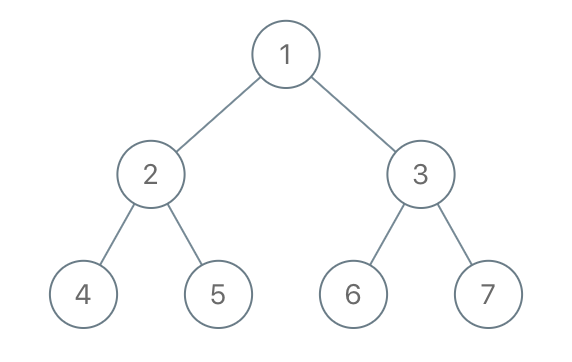Delete Nodes and Return Forest
Created: March 22, 2020 by [lek-tin]
Last updated: March 22, 2020
Given the root of a binary tree, each node in the tree has a distinct value.
After deleting all nodes with a value in to_delete, we are left with a forest (a disjoint union of trees).
Return the roots of the trees in the remaining forest. You may return the result in any order.
Example 1

Input: root = [1,2,3,4,5,6,7], to_delete = [3,5]
Output: [[1,2,null,4],[6],[7]]
Constraints
1 The number of nodes in the given tree is at most 1000.
2. Each node has a distinct value between 1 and 1000.
3. to_delete.length <= 1000
4. to_delete contains distinct values between 1 and 1000.
Solution
# Definition for a binary tree node.
# class TreeNode:
# def __init__(self, x):
# self.val = x
# self.left = None
# self.right = None
class Solution:
def delNodes(self, root: TreeNode, to_delete: List[int]) -> List[TreeNode]:
self.res = []
to_delete = set(to_delete)
self.dfs(root, to_delete, True)
return self.res
def dfs(self, root, to_delete, is_root):
if not root:
return None
is_deleted = root.val in to_delete
if is_root and not is_deleted:
self.res.append(root)
root.left = self.dfs(root.left, to_delete, is_deleted)
root.right = self.dfs(root.right, to_delete, is_deleted)
return None if is_deleted else root